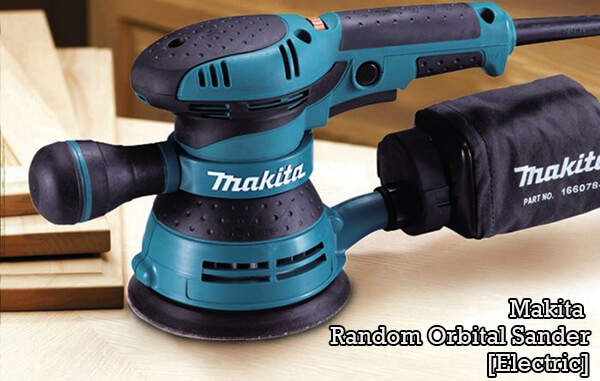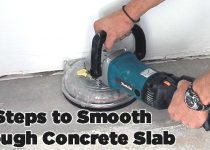Air Sander Vs Electric Sander Comparison [with Infographic]
Some of us like to use air sanders while others are fond of electric sanders. “Pneumatic sander vs electric sander, which one is better?” this question has been bothering me for a long time that. To clear all my doubts on this topic, I have been doing a lot of research lately.
A few days ago, I found everything I need to conclude. That’s why today I am sharing my thoughts on air sander vs electric sander, which one you should own and why.
Table of Contents:=>
Main Differences between Pneumatic Sander Vs Electric Sander:
There are a few key differences that define “air vs. electric orbital sanders” the best. These differences also show you which one is better for what purposes. I have given all the variations below to help you know everything about different sanders, including dual action sander air vs electric.

Weight of the Sander:
Air or pneumatic sanders and electric sanders are different in weight. The pneumatic or air sanders are comparatively lighter than the electric sanders. It is due to the motor of the sander. Electric sanders have motors inside, which add to the weight of the sander.
On the other hand, pneumatic sanders have no motor, which is why they feel less dense or lighter than electric sanders. If your work requires too much movement or you have to carry the sander to distant places, then a lighter sander is handy. But for stable jobs, an electric sander is good.
You have to keep in mind that a pneumatic sander requires an air compressor to run. In this case, if you have to carry only the sander, then a pneumatic sander is better. But if you have to carry the sander with the compressor, then the electric sander is better.
How Loud Is the Sander?
You already know that pneumatic sanders don’t have a motor inside them. That’s why they are quieter than electric sanders. You should know that I am talking about the pneumatic sander only and not about the air compressor combined with the sander.
It is because air compressors are usually loud, but there are some quieter compressors too. If you have a more silent air compressor and you use it with your sander, then you will have a quieter pneumatic sander. In this sense, an electric sander is louder than a pneumatic sander.
Longer or Shorter Lifespan:

Again, as the pneumatic sander has no motor inside, its mechanical properties are more dominant than its electrical properties. In other words, there is less component inside a pneumatic sander to fail. Consequently, electric sanders tend to get damaged sooner than pneumatic sanders.

Which One is Costlier:
When it comes to the cost, of course, electric sanders are costlier than pneumatic sanders. It is because electric sanders have more mechanisms and work ability than pneumatic sanders. Moreover, electric sanders have more components inside it.
But pneumatic sanders require air compressors to run. So, if you already own an air compressor, then getting a pneumatic sander is a better option as it will save your money. But if you don’t have an air compressor, then I think you should go for the electric sander.
Because without an air compressor, you cannot run a pneumatic sander. In this case, if you get a pneumatic sander to save money, you will eventually have to buy an air compressor. It will cost even more. That is to say; price is a crucial point to keep in mind for air orbital sander vs. electric sander.
What is More Powerful [Air vs Electric Random Orbital Sander ]
With the same price, you can have a more powerful pneumatic sander instead of an electric sander. It depends on the CFM rating of the pneumatic sander and the air compressor you use to run the air sander.
With a powerful air compressor, you can have more power with an air sander, compared to an electric sander of the same features and price. You have to see the maximum capacity of an air sander to consume power from an air compressor to run. With that, you should also see how much output you get.
Just like this, compare an electric sander to see if it works better for you or not. If you already have a powerful air compressor, then you can get a pneumatic sander with a lower price but more power.
Can It Collect Dust or Not?:
Electric sanders are well known for collecting dust automatically after sanding is done. But this feature is not always available for pneumatic sanders. When it comes to electric orbital sander vs. pneumatic sander, the electric sander is more reliable for this feature.
In this case, if dust collection is one of the things in your bucket list, then you surely have to go for an electric sander. But sometimes, you don’t need this feature for your work. In that case, you can choose either one according to other benefits or features.
Mass Production Vs. Small Shops
I will get right to the point. For small shops, electric sanders are better to choose, but for mass production, pneumatic sanders are a better option. Why, you ask?
First of all, electric sanders don’t require an air compressor to run. So, unless you are not using a sander for industrial purposes, you don’t need a sander that needs an air compressor to run.
Secondly, pneumatic sanders provide more power that is necessary for mass production. You don’t need so much power for your jobs at a small shop. That’s why, for small shops, electric sanders are better than air sander.
Infographic:

Share this infographic:
<a href="https://solvesonic.com/air-vs-electric-sander"><img class="aligncenter" title="air vs electric sander infographics by Solvesonic.com" src="https://solvesonic.com/wp-content/uploads/air-vs-electric-sander-infographics.png" alt="air vs electric sander infographics" width="500" height="1530" /></a>
Conclusion:
In the end, you should know that there are a lot of brands of sanders available in the market. They have a lot of functionalities that are more or less similar to one another. If you want to get a sander from any of these brands, the above topics will help you to choose from an air sander vs. electric sander. So, you can get any brand for either electric or pneumatic sander. For instance,
- Craftsman
- Ryobi
- Ridged
- Skil
- Wen
- Bosch
I think this is all you should know about electric da sander vs air sander. If there are more questions you would like to ask on-air sander vs. electric sander, you can comment on them. I will get back to you as soon as possible. Thank you for reading Solvesonic’s article.
Faq:
Question 1: What is the difference between an air sander and an electric sander?
Answer: The primary difference between an air sander and an electric sander lies in their power source. An air sander, also known as a pneumatic sander, relies on compressed air provided by an air compressor. In contrast, an electric sander operates using electricity from a standard wall outlet. This distinction affects their portability, power output, and versatility.
Air sanders are favored for their high power and are commonly used in industrial and automotive settings, while electric sanders offer greater portability and versatility for a wide range of tasks, making them a popular choice in woodworking and general DIY projects. Each type has its unique strengths, making the choice dependent on the specific needs of the job at hand.
Question 2: What are the advantages of a pneumatic sander?
Answer: Pneumatic sanders, also known as air sanders, offer several advantages that make them a preferred choice in various industries, including automotive and manufacturing. One of their primary advantages is their consistent and high power output, thanks to the compressed air source. This high power makes them efficient for heavy-duty tasks like removing paint, smoothing metal surfaces, or sanding large areas quickly.
Additionally, pneumatic sanders are known for their durability and relatively low maintenance requirements compared to some electric counterparts. Their reduced heat buildup during operation can also lead to longer tool life. Overall, pneumatic sanders are prized for their power, reliability, and suitability in demanding industrial applications.
Question 3: Is it better to use an electric sander?
Answer: Whether it’s better to use an electric sander or not depends on the specific task and your requirements. Electric sanders offer greater versatility for a wide range of applications, making them ideal for woodworking and general DIY projects. They come in various types, such as random orbital sanders, belt sanders, and detail sanders, each suited to different tasks. Electric sanders are also more portable since they only require access to a standard electrical outlet.
On the other hand, if you require high power for heavy-duty tasks, especially in industrial or automotive settings, a pneumatic (air) sander might be a better choice due to its consistent power output and ability to handle demanding applications. Ultimately, the choice between an electric and pneumatic sander should align with the specific demands of your project.
Last Updated on October 4, 2024 by Rogers Weber
[As an Amazon Associate I earn from qualifying purchases.]



you really know tools,what air compressors cfm,horse power and tank capacity can run air tool in a small workshop